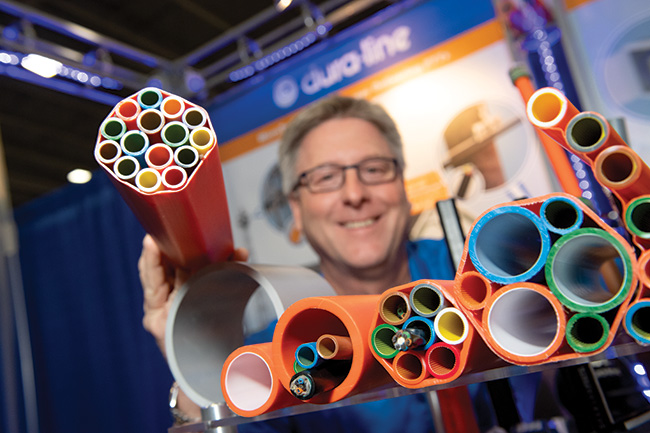“America will never have the infrastructure system it needs and deserves if we don’t do a better job of incorporating technology,” said leading Republican Sam Graves.
He leads the Transportation and Infrastructure Committee in the US House of Representatives and made the comments this week at a hearing entitled ‘The Cost of Doing Nothing: Why Investing in Our Nation’s Infrastructure Cannot Wait’.
Ranking member Graves said: “Compared to other countries, our infrastructure is falling behind, and in some cases falling apart. Technology is rapidly developing, but our infrastructure doesn’t always reflect those advancements. That needs to change.”
In words that will be music to the ears of the ITS sector, he added: “There is tremendous potential for technology to make our infrastructure safer and less costly, reduce congestion, improve the efficiency of the entire network, and even alleviate the growing demands on our infrastructure.”
This chimes with the mood at %$Linker:
He added: “While you’re at it, why not make sure that those roadways have fibre or wireless in the roads and sensors associated with them and roadside units for connected vehicles.”
Missouri Republican Graves says he is determined to reach a bipartisan deal on funding US infrastructure. But in what could prove a controversial move, he said that new pricing models such as road user charging need to be tried in the US.
“Congress is going to consider a number of options to address this problem, but I believe that the only viable future lies in a transition to a vehicle miles travelled (VMT) programme…VMT is already being applied at the state level, and it’s time to pursue this solution nationally.”
This is likely to be unpopular – not just because of the cost to motorists, but because of the surveillance implications. However, Graves reassured the committee: “I want to point out that we’re not talking about Big Brother tracking our every move. Protecting Americans’ privacy is critical, and we can absolutely do a VMT programme without intruding upon people’s privacy.”
US road infrastructure ‘needs more technology’, says leading Republican
“America will never have the infrastructure system it needs and deserves if we don’t do a better job of incorporating technology,” said leading Republican Sam Graves.
He leads the Transportation and Infrastructure Committee in the US House of Representatives and made the comments this week at a hearing entitled ‘The Cost of Doing Nothing: Why Investing in Our Nation’s Infrastructure Cannot Wait’.
Ranking member Graves said: “Compared to other countries, our infrastructure is falling behind, and in so







